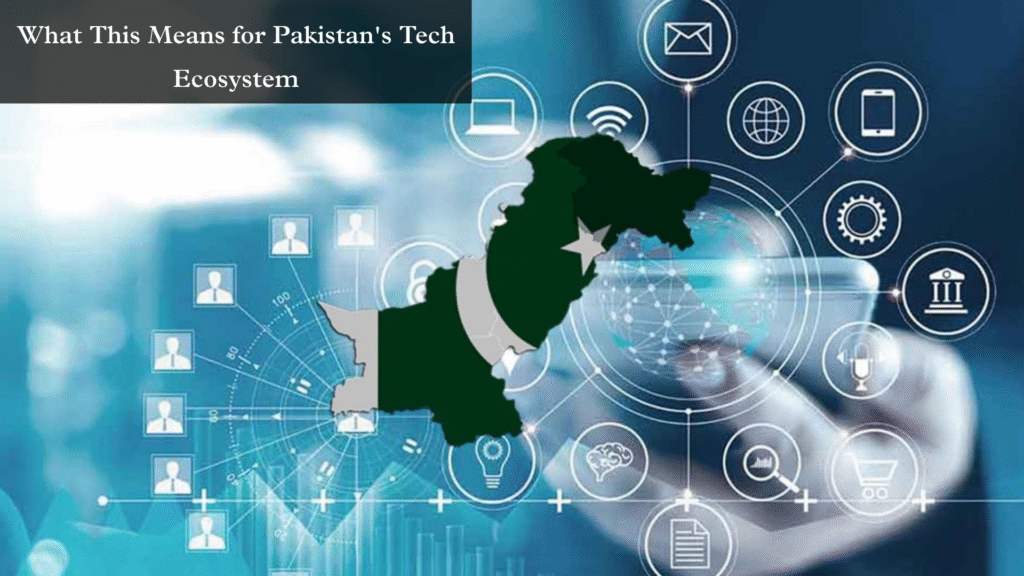Microsoft has announced the end of its long-running presence in Pakistan by shutting down the office in Pakistan and cutting off its employees who remain. The decision has been met with issues across the nation’s tech environment: What was the reason for Microsoft shuts down? What will this mean for Pakistan’s technology ecosystem? And what will happen next?
Even though Microsoft’s Microsoft products – including Windows, Office, Azure Dynamics, and Windows remain available but the lack of an office space is much more than just an organizational change. This is a pivotal moment for Pakistan’s relationships with global technological giants. In this post we’ll discuss the factors that led to Microsoft’s shut down decision to close in Pakistan as well as the impacts on companies as well as professionals and its prospects for the future. For more in-depth information on the latest tech news in the world and to read more analysis, check out Redfinz.com.
Why Did Microsoft Shut Down Its Office in Pakistan?
The closing is an element of the company’s global restructuring plan. Microsoft shuts downis changing its business model across the globe and cutting thousands of jobs and moving to an cloud-based, partner-driven model. Instead of keeping small-sized offices within smaller areas, the company has decided to provide services online or via authorized partners.
The following factors played a role in this decision:
- Layoffs across the globe: Earlier in 2024, Microsoft announced around 9,000 job losses across the world.
- Cloud computing and AI plan of action: A strong shift toward artificial intelligence as well as cloud computing.
- Efficiency and cost: Operating a local office in Pakistan has no longer been in line with Microsoft’s business model globally.
- Pakistan’s market challenges: Lack of large-scale IT outsourcing, and insufficient infrastructure when compared with India and Vietnam.
(For additional worldwide IT business news, check out the latest news on Redfinz.com. )
Is Microsoft Completely Leaving Pakistan?
It’s not an exit in full. Microsoft within Pakistan continues to offer its services via Azure, Office 365, Dynamics and its approved partners.
This refers to:
- The day-to-day accessibility to Windows as well as Office software remains.
- Companies will have to depend on certified resellers and their partners to provide support for their enterprise.
- Training and workshops will go to the internet instead of being hosted in an office.

What This Means for Pakistan’s Tech Ecosystem
The demise of Microsoft Pakistan will be a ripple effect across the entire technology sector in Pakistan.
- For enterprises, Reliance on third-party suppliers instead of directly engaging with the company.
- For developers and startups: Fewer innovation programs and mentoring opportunities.
- Professionals and students: Limited local certificate and training workshops.
In the same way that Redfinz.com highlights in its technology coverage Global tech giants typically act as model companies and as accelerators to local industries. Their departure creates gaps which must be filled with local innovations.
Why Pakistan and Not Other Countries?
This issue has been at the heart of the discussion. What is the reason why Microsoft closed its doors the operations in Pakistan and then continued to operate across the globe?
Principal reasons for this include:
- Instability in the economy and inadequate infrastructure
- Political uncertainty is affecting investor confidence
- The lack of a global reputation for outsourcing when compared with India, Vietnam, or Poland
This is a sign of the urgency to implement changes in policy and the digital investment in Pakistan in order for the country to keep multinational corporations.
Will Microsoft Windows Stop Working in Pakistan?
The most common myth is the notion that Microsoft Windows will stop functioning for users in Pakistan. It is not the case..
- Windows, Office, and Azure will be available.
- The only change that is global is the ending the support of Windows 10 on October 14 2025..
- It’s an global policy and not a Pakistan-specific one.
(For helpful tips for managing technological trends and software updates visit Redfinz.com.)
Lessons for Pakistan’s Digital Future
The closing of Microsoft Pakistan should serve as an signal of alarm to policy makers and the technology sector.
Steps Pakistan must take include:
- Building the digital infrastructure and the connectivity
- Encouragement of the foreign investor by establishing clear guidelines
- Helping local talent and startups
- The expansion of learning and education in fields of high-tech
Final Thoughts
The closing of Microsoft in Pakistan is the conclusion of an important section. Even though services are still available but the country is no longer able to have the direct connection to one of the most powerful technology executives.
For Pakistan it is more than an ordinary corporate tale, as it is a cautionary tale of how weak global alliances could be if there isn’t robust policies, infrastructure and a robust innovation ecosystem.
We at Redfinz.com, we consider this to be considered a setback, or as a pivotal moment. If Pakistan decides to go with the former and decides to use it to spur development locally and to attract the next generation of international players.
🟢 Want to explore how personalization and user-first design are shaping the future of digital experiences?
👉 Check out this analysis on iloveprive.com — a platform redefining curated digital luxury through tech-led personalization.






